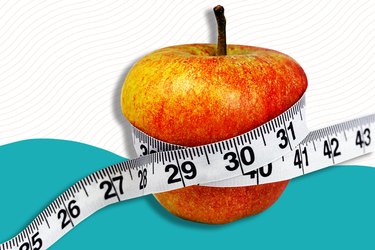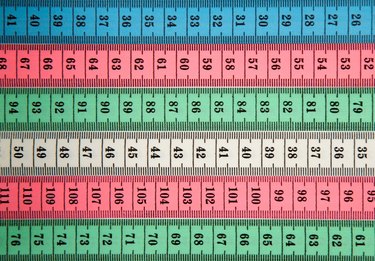How To Get Rid Of Apron Belly

Belly fat is different from other types of fat in the body.
Image Credit: LIVESTRONG.com Creative
You may not like it, but you have to hand it to belly fat: It sure is persistent. If you've ever tried to whittle down your waistline, you know exactly what we mean.
What you may not know, though, is that belly fat is a unique type of body fat that comes with its own health risks and cast of likely culprits. Specific foods have been linked directly to the pounds that tend to pack around your middle, and there are certain exercises and eating plans that work better than others when you're trying to get rid of the stuff, too.
Here's everything you need to know about belly fat, all in one place, so you can get to know your foe — and then arm yourself to bid it adieu.
Belly Fat 101

There are two types of belly fat, and one is much more dangerous than the other.
Image Credit: izhairguns/iStock/GettyImages
Even though it may seem like one big, bothersome blob to you, belly fat is actually made up of two different types of fat: subcutaneous fat, which is the soft, "pinchable" kind you'll find just under your skin; and visceral fat (aka hard fat), which is found deep in your belly surrounding your organs.
If "surrounding your organs" sounds a little alarming to you, you're right — hard fat is much more dangerous to your health than soft fat. Yes, subcutaneous fat is visible and really annoying when you're trying to find a new pair of jeans, but that's nothing compared to visceral fat, which messes with your hunger hormones (leading to even more weight gain) and is linked to a long list of serious, chronic health conditions.
The Health Risks of Hard Fat

Having too much core fat puts your health at risk.
Image Credit: FatCamera/E+/GettyImages
Experts are just beginning to understand visceral fat's role in chronic inflammation, which has been linked to a number of illnesses. But what is clear is that people with more hard fat have a higher risk of developing diabetes, high blood pressure, cancer and dementia.
Because visceral fat is found deeper in your body and isn't visible like subcutaneous fat, it's possible to have too much of this hard belly fat even if your BMI is in the healthy range. It's often referred to as "skinny fat," and in some ways it's as risky as being overweight.
Get the full picture of the six big health issues tied to higher-than-healthy levels of belly fat.
How to Measure Belly Fat

You can use a tape measure to calculate belly fat, but other methods may be more accurate.
Image Credit: borojoint/iStock/GettyImages
So if you're not able to see visceral belly fat, how are you supposed to know how much you even have? There are several different methods to calculate abdominal fat, including calipers, DEXA and 3D body scanning, but they vary widely when it comes to cost, accessibility and ease of use.
Breaking out the tape measure is the simplest way, but it has a few limitations you'll want to keep in mind.
Check out the four best ways to measure belly fat, including the pros and cons of each method — and discover the one tool you should definitely avoid.
The Most Common Culprits

Lack of sleep may prompt your body to store more belly fat.
Image Credit: PeopleImages/E+/GettyImages
Like so many other aspects of your health, how much belly fat your body stores is largely influenced by your age and genetics: Some of us are more prone than others, and we all tend to gain more waistline padding as we get older.
But those aren't the only causes. Lifestyle habits like diet and exercise play a key role, of course, but even how much sleep you get and stress you experience can make a big difference.
How to Lose Belly Fat for Good

High-intensity intervals are a great way to trim your middle.
Image Credit: vm/E+/GettyImages
We now know that packing too much weight around your middle can cause more problems than a tight waistband. And we've ticked off the top offenders behind waistline weight gain. So the big question remains: Can you get rid of this most unwelcome type of body fat?
The answer is a resounding yes, and dangerous visceral fat is actually the easiest to shed. (Finally, some good news!) But it's important to separate the fads from the research-backed methods that really work.
How To Get Rid Of Apron Belly
Source: https://www.livestrong.com/article/13723762-belly-fat/
Posted by: perryfeas1993.blogspot.com

0 Response to "How To Get Rid Of Apron Belly"
Post a Comment